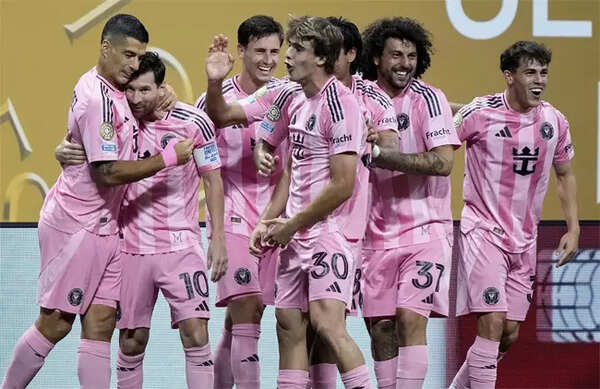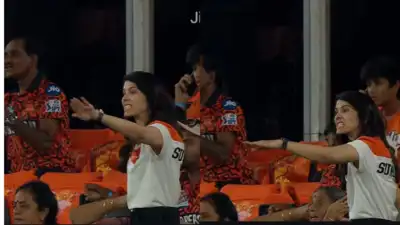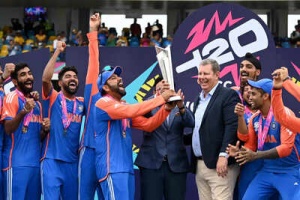The FIFA Club World Cup 2025, in its revamped format, has delivered a compelling narrative as it progresses towards the Round of 16. This edition boasts an expanded lineup, a redesigned trophy, multiple venues, and the innovative referee cam, mirroring the scale and excitement of the quadrennial World Cup.
Organizers have hailed the event as "a celebration of hope, excellence, and pride," uniting clubs, players, and fans in their shared passion for the sport. With numerous debutants and a month-long schedule, the tournament's significance has undoubtedly grown.
Featuring teams from all six confederations—12 from Europe, 6 from South America, 4 each from Africa, Asia, and North/Central America and the Caribbean, 1 from Oceania, and the host nation's representative—the 2025 Club World Cup has witnessed its share of unexpected results, clashes between underdogs and giants, and moments of intense competition.

Auckland City, ranked 4,971st by Opta Power Rankings, entered the tournament as the lowest-ranked team. Placed in a group with Bayern Munich, Benfica, and Boca Juniors, their prospects appeared bleak. The New Zealand-based club, composed of amateur players from the Northern League, faced a daunting challenge.
Their campaign began with a harsh 0-10 defeat against Bayern Munich, the tournament's largest margin of victory, followed by a 0-6 loss to Benfica.
Facing Argentinian powerhouse Boca Juniors in their final match, Auckland City defied expectations. The amateurs, separated by 4,819 ranking points from their opponents, secured a 1-1 draw, denying Boca Juniors a place in the Round of 16. This result stands as a testament to the unpredictable nature of football.
Inter Miami, led by Lionel Messi and supported by Luis Suarez, Jordi Alba, and Sergio Busquets, defied expectations in a group that included Porto, Al Ahly, and Palmeiras. Despite the odds, they secured a spot in the Round of 16, finishing second in Group A.

While Miami managed only one win, it proved sufficient for qualification. Following a draw against Al Ahly, they faced Porto, where Messi's brilliance, highlighted by a stunning free-kick, secured a 2-1 victory. A 2-2 draw against Palmeiras sealed their progression to the next stage.
The final matchday in Group E saw tensions escalate as River Plate's Marcos Acuna and Inter Milan's Denzel Dumfries nearly came to blows after their match. The confrontation, rooted in a previous encounter three years prior, saw Acuna taunt Dumfries with a reference to Argentina's victory over the Netherlands in the 2022 World Cup quarter-final.
Beyond on-field clashes, extreme temperatures presented challenges for players, with teams resorting to ice baths and cold towels. Borussia Dortmund even had their substitutes watch the game from the locker room to shield them from the heat. Thunderstorms and lightning caused delays in several matches.
Furthermore, the presence of ICE (US Immigration and Customs Enforcement) and Customs and Border Protection (CBP) marked a first for the tournament, requiring non-citizens to provide proof of legal status to attend games.
With the 2026 FIFA World Cup, co-hosted by the United States, Mexico, and Canada, less than a year away, the Club World Cup has raised concerns about pitch quality and weather conditions.
Real Madrid's Jude Bellingham criticized the playing surfaces, stating, "The pitches aren’t great here. The pitches aren’t great at all."
Despite the surprises and underdog stories, the tournament remains a domain for Europe's elite clubs. Teams such as Real Madrid and Manchester City are still considered strong contenders for the title. Several teams, including Seattle Sounders, Urawa Reds, Ulsan, Wydad AC, and Pachuca, were eliminated without earning a single point.
Group A: Palmeiras, Inter Miami Group B: Paris Saint-Germain, Botafogo Group C: Bayern Munich, Benfica Group D: Flamengo, Chelsea Group E: Inter Milan, Monterrey Group F: Borussia Dortmund, Fluminense Group G: Manchester City, Juventus Group H: Real Madrid, Al Hilal
Newer articles
Older articles
 Kavya Maran on IPL Fame, Team Passion, and Viral Meme Status
Kavya Maran on IPL Fame, Team Passion, and Viral Meme Status
 Rishabh Pant's 'Revolutionary' Batting Redefining Cricket, Says Greg Chappell
Rishabh Pant's 'Revolutionary' Batting Redefining Cricket, Says Greg Chappell
 Raducanu Quashes Alcaraz Romance Rumors, Confirms US Open Doubles Partnership
Raducanu Quashes Alcaraz Romance Rumors, Confirms US Open Doubles Partnership
 FIFA Club World Cup 2025: Upsets, Messi Magic, and 2026 World Cup Concerns Emerge From Group Stage
FIFA Club World Cup 2025: Upsets, Messi Magic, and 2026 World Cup Concerns Emerge From Group Stage
 Warning Signs: 5 Subtle Symptoms of Prediabetes You Shouldn't Ignore
Warning Signs: 5 Subtle Symptoms of Prediabetes You Shouldn't Ignore
 Rohit Sharma Reflects on India's T20 World Cup Win, Hails Barbados as Key to Victory
Rohit Sharma Reflects on India's T20 World Cup Win, Hails Barbados as Key to Victory
 Wimbledon 2025: Dates, Prize Money, and Streaming Guide for Fans in India & US
Wimbledon 2025: Dates, Prize Money, and Streaming Guide for Fans in India & US
 Gavaskar Calls for Kuldeep Yadav's Inclusion in Second Test Amid Bumrah Fitness Concerns
Gavaskar Calls for Kuldeep Yadav's Inclusion in Second Test Amid Bumrah Fitness Concerns
 Former India Selector Slams Fielding Blunders After Test Defeat to England
Former India Selector Slams Fielding Blunders After Test Defeat to England
 Former Pakistan Player Kamran Akmal Blasts PCB Over Azhar Mahmood Test Coach Appointment
Former Pakistan Player Kamran Akmal Blasts PCB Over Azhar Mahmood Test Coach Appointment